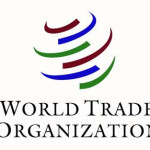- Industri: Government
- Number of terms: 7177
- Number of blossaries: 0
- Company Profile:
The World Trade Organization (WTO) deals with the global rules of trade between nations. Its main function is to ensure that trade flows as smoothly, predictably and freely as possible.
Commitment not to increase a rate of duty beyond an agreed level. Once a rate of duty is bound, it may not be raised without compensating the affected parties.
Industry:Economy
Higher import duties on semi-processed products than on raw materials, and higher still on finished products. This practice protects domestic processing industries and discourages the development of processing activity in the countries where raw materials originate.
Industry:Economy
Relatively high tariffs, usually on sensitive products, amidst generally low tariff levels. For industrialized countries, tariffs of 15% and above are generally recognized as tariff peaks.
Industry:Economy
When quantities inside a quota are charged lower import duty rates, than those outside (which can be high).
Industry:Economy
Procedures relating to the agricultural market-access provision in which all non-tariff measures are converted into tariffs.
Industry:Economy
Customs duties on merchandise imports. Levied either on an ad valorem basis (percentage of value) or on a specific basis (e.g. $7 per 100 kgs.). Tariffs give price advantage to similar locally-produced goods and raise revenues for the government.
Industry:Economy
Regulations, standards, testing and certification procedures, which could obstruct trade. The WTO's TBT Agreement aims to ensure that these do not create unnecessary obstacles.
Industry:Economy
A formula where higher tariffs have steeper cuts than lower tariffs - products with higher tariffs are put in a higher category or tier, which has a steeper cut than lower tiers. Also used for cutting domestic support.
Industry:Economy
A product as defined in lists of tariff rates. Products can be sub-divided, the level of detail reflected in the number of digits in the Harmonized System (HS) code use to identify the product.
Industry:Economy
